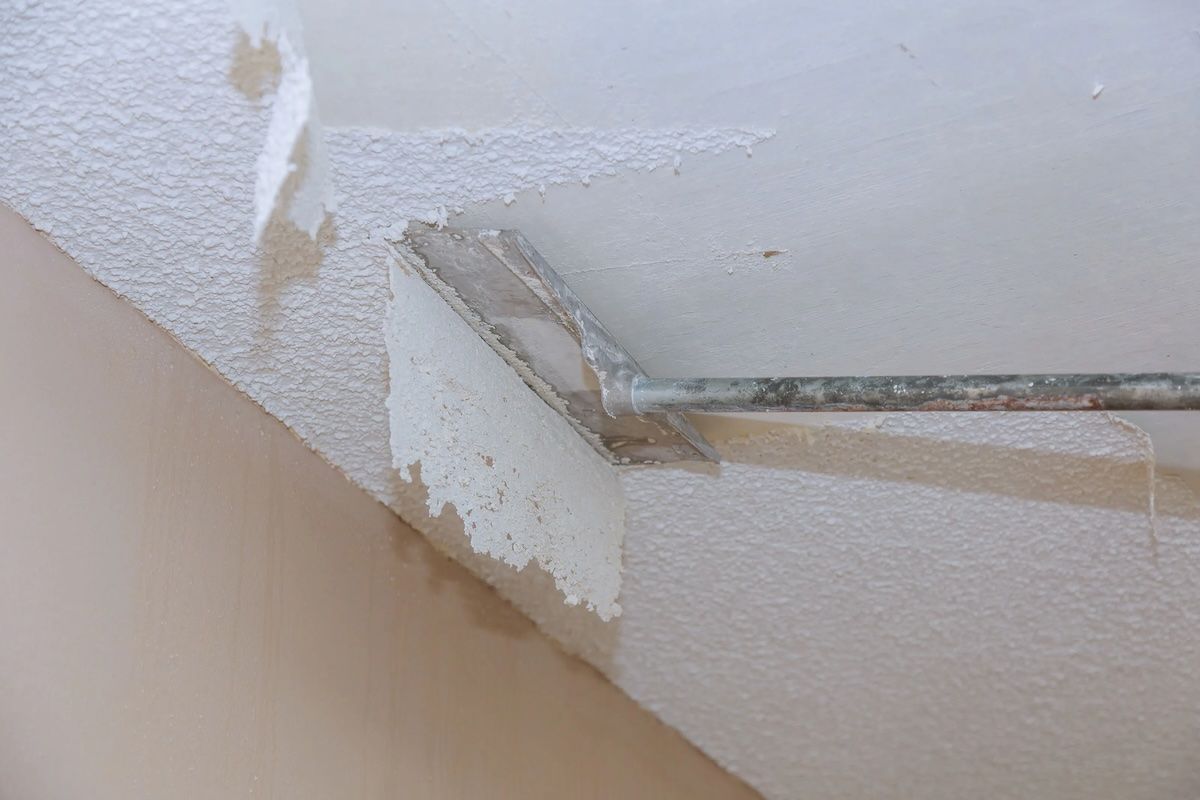Negotiating With Home Buyers: An Art or a Science?

People have been negotiating since the beginning of time. It is an essential part of human interaction, and it’s what allows us to get what we want in life. But is negotiation an art or a science? Is there a right way to negotiate, or are there infinite ways to do it correctly? And, how do you apply this knowledge to negotiating with home buyers?
In this article, we’ll explore the art and science of negotiation and see how it applies to home buyers. We’ll also look at some tips on how to negotiate successfully with home buyers.
What Are the Different Types of Negotiation?
Before we dive into home buyer negotiation, it’s important to understand the different types of negotiation. There are four main types of negotiation:
1. Distributive Negotiation
2. Integrative Negotiation
3. Competitive Negotiation
4. Win-win Negotiation
Distributive Negotiation
Distributive negotiation is what most people think of when they hear the word “negotiation.” It is a zero-sum game, where one person’s gain is another person’s loss. In other words, for you to win in a distributive negotiation, the other person has to lose.
This type of negotiation is usually used in situations where there is a limited amount of resources and both parties are vying for a bigger piece of the pie. For example, if you’re negotiating your salary with your boss, it’s likely that they will try to give you the lowest possible salary increase because they want to save money for the company.
When negotiating with home buyers, distributive negotiation can happen when buyers are bidding on a property that has multiple offers. In this situation, the seller is trying to get the highest possible price for their home, while the buyers are trying to get the lowest possible price.
Integrative Negotiation
Integrative negotiation is the opposite of distributive negotiation. In this type of negotiation, both parties are trying to find a win-win solution where everyone comes out ahead.
This type of negotiation is usually used in situations where both parties have something to gain or lose. For example, if you’re negotiating with your spouse about who is going to take out the trash tonight, you’re likely to come to an agreement that works for both of you because it’s not worth fighting over.
In home buyer negotiation, integrative negotiation can happen when buyers and sellers are trying to come to an agreement on repairs that need to be made before the sale is finalized. In this situation, both parties are trying to find a solution that is fair and beneficial for both of them.
Competitive Negotiation
Competitive negotiation is a type of negotiation where both parties are trying to get the best deal for themselves. This type of negotiation is usually used in situations where both parties have something to gain or lose and there is no room for compromise.
For example, if you’re negotiating with your cable company about your bill, you’re likely to be very competitive because you want to get the best possible price. In this situation, the cable company is also being competitive because they want to keep as much of your money as possible.
In home buyer negotiation, competitive negotiation can happen when buyers and sellers are both trying to get the best deal for themselves. In this situation, there is usually no room for compromise and both parties are trying to get the best possible outcome for themselves.
Win-Win Negotiation
Win-win negotiation is a type of negotiation where both parties are trying to find a solution that is fair and beneficial for both of them. This type of negotiation is usually used in situations where both parties have something to gain or lose and there is room for compromise.
For example, if you’re negotiating with your spouse about who is going to take out the trash tonight, you’re likely to come to an agreement that works for both of you because it’s not worth fighting over. In this situation, both of you are trying to find a solution that is fair and beneficial for both of you.
In home buyer negotiation, win-win negotiation can happen when buyers and sellers are trying to come to an agreement on repairs that need to be made before the sale is finalized. In this situation, both parties are trying to find a solution that is fair and beneficial for both of them.
What Are the Stages of Negotiation?
There are five main stages of negotiation:
1. Investigation & Opening Moves
2. BATNA (Best Alternative to a Negotiated Agreement)
3. Presentation
4. Bargaining
5. Closing the Deal
Investigation & Opening Moves
The first stage of negotiation is the investigation and opening moves. In this stage, both parties are trying to gather information about each other and their goals. They will also make initial offers and counter-offers.
BATNA (Best Alternative to a Negotiated Agreement)
The second stage of negotiation is BATNA. In this stage, both parties are trying to assess their best alternative to a negotiated agreement. This is the point at which they will walk away from the negotiation if they can’t come to an agreement that meets their needs.
Presentation
The third stage of negotiation is presentation. In this stage, both parties present their case to each other and try to convince the other party to agree to their terms. This is usually the longest and most difficult stage of negotiation.
Bargaining
The fourth stage of negotiation is bargaining. In this stage, both parties try to come to an agreement on the terms of the deal. This is usually a back-and-forth process where both parties make offers and counter-offers until they reach an agreement.
Closing the Deal
The fifth and final stage of negotiation is closing the deal. In this stage, both parties sign the final contract and agree to the terms of the deal. This is the point at which both parties have committed to the terms of the agreement.
The Artful Aspect of Negotiation
When we think of negotiation, we often think of it as a haggling process. But negotiation is so much more than that. It’s about understanding people and their motivations. It’s about being able to read body language or read between the lines to understand what someone is really saying. It’s also about speaking and behaving in a way that is likely to get the result you want. And, most importantly, it’s about being able to find common ground and build relationships.
In order to achieve these things, we must tap into our flexibility and creativity. We must be open to new ideas and be willing to think outside the box. We must be artful in our negotiation if we want to achieve the best possible outcome.
The Scientific Aspect of Negotiation
While negotiation is an art, there is also a science to it. This is the part of negotiation where we analyze data and try to find patterns. In order to be successful, we must understand the basic principles of negotiation and how they can be applied in different situations.
The following are some of the most important principles of negotiation:
1. Separate the people from the problem.
2. Focus on interests, not positions.
3. Invent options for mutual gain.
4. Insist on using objective criteria.
Tips for Negotiating with Home Buyers
Now that you understand the basics of negotiation, let’s take a look at some tips for negotiating with home buyers. For help with this, we reached out to Carter Crowley, Co-Owner of CB Home Solutions.
“So, there are no clear rules of engagement. Think of a poker game. There are rules, but the gameplay depends on the cards in your hand. And I wish every seller knew this simple fact. It’s not wise to enter negotiations with presuppositions,” he explained.
“If the buyer is an investor, you have more space to get a better offer. Investors generally tend to eye properties they think will rise in value in the future. Delay the sale. Tell them you are losing interest. Bluff, and declare that you have higher offers. And you’ll see the investor fold.
If the buyer plans on living in the home, the course of the negotiations will be different. Residents generally tend to be more patient. They are making a once-in-a-lifetime purchase, are in no rush, and can quickly move to another property at the slightest hint of a defect. Sellers should try to relate to such buyers.”
A few more tips to keep in mind as you navigate your way through the process:
1. Be Prepared
This is perhaps the most important tip for negotiating with home buyers. You need to know your goals and what you’re willing to concede. You also need to know the buyer’s motivation for buying the property. This will give you a good starting point for negotiation.
2. Be Flexible
You need to be willing to compromise in order to get the deal done. The buyer is likely to have their own goals and objectives, so you need to be able to find common ground.
3. Know Your BATNA
As we mentioned earlier, your BATNA is your Best Alternative To a Negotiated Agreement. This means that you should know what your bottom line is and be prepared to walk away from the negotiation if the buyer isn’t willing to meet your needs.
4. Be Assertive
It’s important to remember that you are the one in control of the negotiation. You need to be confident and assertive in order to get the best possible outcome.
5. Be Patient
Patience is key when negotiating with home buyers. Don’t be afraid to take your time and think about each offer before making a decision.
Find an Experienced Real Estate Agent to Help You Negotiate
If you’re not experienced in negotiation, it’s a good idea to find a real estate agent who can help you. A good agent will be a pro with the negotiation process and will be able to help you get the best possible outcome.
The bottom line is that negotiation is an important part of the home buying process. If you’re not comfortable negotiating on your own, find an experienced real estate agent to help you. With a little preparation and practice, you should be able to get the best possible deal on your new home.
If you’re considering listing your home for sale, we can help. FastExpert is a nationwide network of top-rated real estate agents. We can match you with an agent in your area who has experience negotiating with home buyers.





